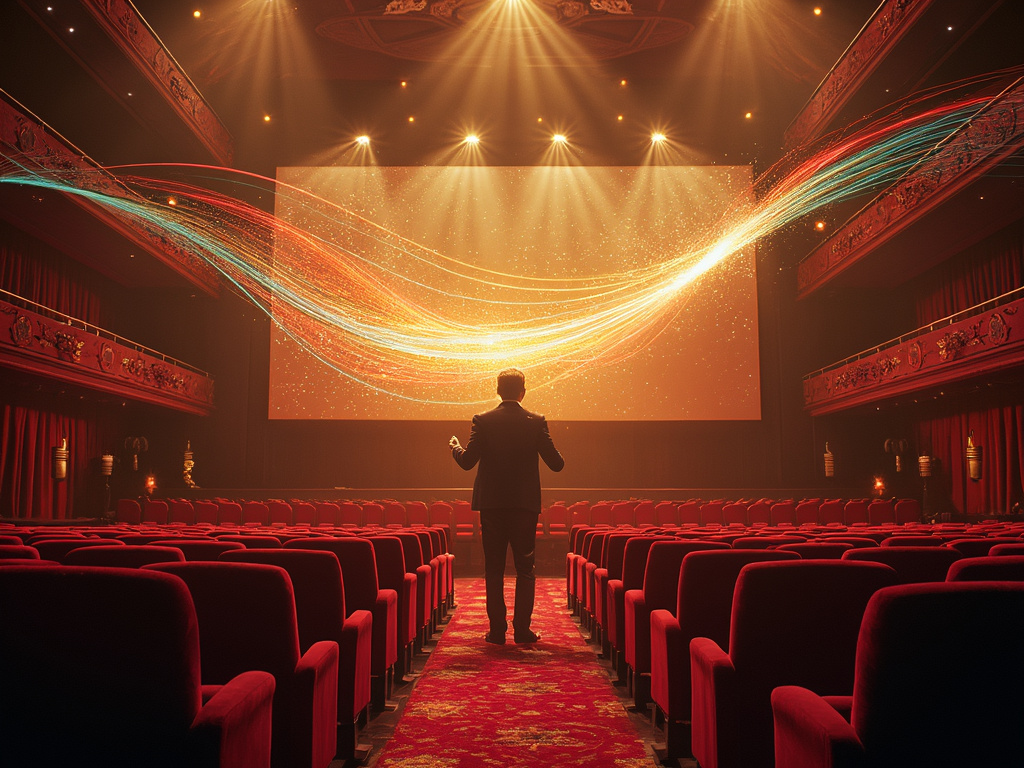The power of music in film
Music has an unparalleled ability to evoke emotions and enhance storytelling, making it an essential component of the cinematic experience. The right film music can transform a scene, turning a simple moment into a powerful memory. From the haunting melodies of a tragic love story to the upbeat rhythms of a feel-good comedy, the music in movies serves as a narrative device that guides the audience’s emotional journey. It is this synergy between visuals and sound that elevates the overall movie experience, creating a lasting impact on viewers.
Moreover, the integration of cinematic soundtracks into films has evolved significantly over the years. Early films relied heavily on live orchestras to accompany silent movies, while modern cinema embraces a diverse range of genres and styles. This evolution reflects not only technological advancements but also the changing tastes of audiences. As a result, soundtracks have become a vital part of film marketing, often leading to chart-topping albums that resonate with fans long after the credits roll.
Iconic soundtracks that defined eras
Throughout cinematic history, certain soundtracks have become synonymous with the films they accompany, defining entire eras of filmmaking. For instance, the soundtrack of “Star Wars” is not just a collection of songs; it is a cultural phenomenon that has influenced generations. Composed by John Williams, the score is instantly recognisable and has become a staple in the realm of silver screen soundtracks. Similarly, the music from “The Breakfast Club” encapsulates the spirit of the 1980s, with its mix of pop and rock that resonates with the youth of that time.
These iconic soundtracks do more than just complement the films; they often become a part of the collective memory of audiences. The emotional weight carried by songs like “My Heart Will Go On” from “Titanic” or “I Will Always Love You” from “The Bodyguard” showcases how music in movies can transcend the screen, becoming anthems that evoke nostalgia and sentimentality. Such soundtracks not only enhance the viewing experience but also contribute to the film’s legacy, ensuring that they are remembered long after their release.
How soundtracks influence viewer emotions
The emotional impact of a film is often heightened by its soundtrack. Composers and music supervisors carefully select or create pieces that align with the film’s tone, pacing, and narrative arc. For example, a suspenseful score can heighten tension during a climactic scene, while a soft, melodic tune can evoke feelings of love and longing. This intricate relationship between film music and viewer emotions is a testament to the power of sound in storytelling.
Moreover, studies have shown that music can significantly alter our perception of a scene. A study conducted by the University of Groningen found that participants rated scenes as more emotional when accompanied by a fitting soundtrack. This highlights the importance of cinematic soundtracks in shaping our emotional responses, making them an indispensable tool for filmmakers aiming to create a profound connection with their audience.
The role of composers in movie magic
Composers play a pivotal role in crafting the auditory landscape of a film. Their ability to weave together melodies, harmonies, and rhythms creates a unique sound that can define a movie’s identity. Renowned composers like Hans Zimmer and Ennio Morricone have left indelible marks on the industry, with their scores becoming as iconic as the films themselves. The meticulous process of composing involves understanding the film’s narrative and characters, ensuring that the music enhances rather than overshadows the story.
In addition to creating original scores, composers often collaborate with directors to ensure that the silver screen soundtracks align with the film’s vision. This collaborative effort is crucial in achieving a cohesive cinematic experience. The result is a soundtrack that not only complements the visuals but also resonates with audiences on a deeper emotional level, making the film more memorable and impactful.
Behind the scenes: creating a memorable soundtrack
The process of creating a memorable soundtrack is a complex and collaborative effort that involves various professionals, including composers, music supervisors, and sound designers. Initially, the composer works closely with the director to understand the film’s themes, characters, and emotional beats. This collaboration is essential in crafting a score that enhances the narrative and elevates the overall movie experience.
Once the score is composed, it undergoes several stages of production, including orchestration, recording, and mixing. The final product is a carefully curated collection of pieces that not only serve the film but also stand alone as a work of art. The impact of a well-crafted soundtrack can be profound, often leading to critical acclaim and commercial success. As audiences continue to seek out cinematic soundtracks that resonate with their experiences, the importance of music in film remains undeniable.

